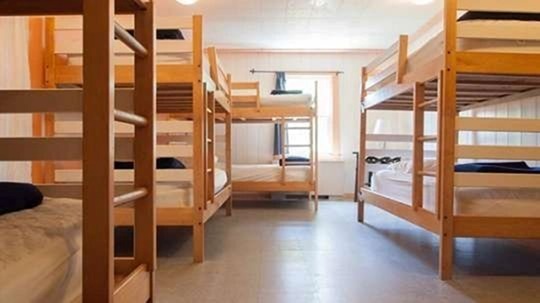
A Glance at a Ghanaian Student Hostel
Living away from home, especially for schooling, is a rite of passage most people in Ghana have to go through.
For students, the traditional university halls which once housed the elite are no longer viable. They lack the capacity for the growing number of students pursuing tertiary education in Ghana.
The hostel concept has evolved to fill this gap — appearing in various forms in cities and towns with tertiary institutions. Unfortunately, their pricing, quality, and services are unregulated. For average students, hostels are the only realistic option. For wealthier students, more expensive apartments are available.
History of Hosteling
The concept of the hostel can be traced back to 1909 when German teacher Richard Schirrmann realized the need for affordable accommodation during school trips. In 1912, he established the first youth hostel at Altena Castle in Germany. By 1919, he had founded the German Youth Association, which helped the concept spread globally.
Life in the Hostel
Hostels serve not only as boarding facilities but as social laboratories. Students of similar age live together, sharing common goals and challenges, fostering intimacy and responsibility away from home.
Students tend to help each other academically and socially when the need arises, according to Ama Abrefa, a hostel tenant.
According to student tenant Lawrence Abaka, hostel life is vibrant and fun, compared to the demanding routine of staying at home. Despite noise, snoring, and lack of privacy, cooperation among students helps create a productive and social atmosphere.
Some hostels provide lounges and study rooms, although these come at a higher cost. To cope with noise, students may use earplugs or sleep masks, seeing hostel life as preparation for independent living.
Shared sleeping and communal spaces encourage social interaction and bonding — an experience students living off-campus often miss.
The Current Situation in Ghana
Securing accommodation at university is one of the biggest challenges students face. Many hostels are located far from campuses, adding transportation costs to the burden.
Ideal hostel amenities include: free Wi-Fi, air conditioning, TV, radio, desk and chair, study room, safe box, and commercial washing machine. But the reality is often quite different — many hostels suffer from visible cracks, leaking roofs, poor sanitation, unreliable water supply, and poor ventilation.
“The disposal of sanitary pads becomes a major concern — that time of month is another headache for female students,” says Pamela Naa Nio.
Students’ psychological well-being and academic focus are often hindered by such poor living conditions. Mr. Frank Kwaku Acheampong of Nyaniba College of Health notes the difficulty of managing diverse student behaviors despite set rules.
Rents
“The challenge isn’t exams or reading — it’s finding suitable accommodation,” says Mariam Razak.
Some hostel rents even exceed tuition fees, excluding many students from the hostel market.
Examples of hostel rents:
- University of Ghana: GHC 853 – 2,900
- Central University: GHC 2,900 – 4,700
- Ghana Telecom University: GHC 1,500 – 3,500
- Ghana Institute of Journalism: No accommodation available
Despite high prices, many hostels lack essential facilities such as study rooms, TVs, or laundry machines.
The Way Forward
To improve the situation:
- The Rent Control Department should regulate hostel standards and pricing.
- Guidelines should define amenities and room-sharing limits.
- Universities should publish housing options before enrollment.
- Students should be taught maintenance and care for shared facilities.
Conclusion
Hostel owners must provide adequate rooms and basic academic and recreational facilities to justify their presence in the student housing market.
Source: newsghana.com.gh